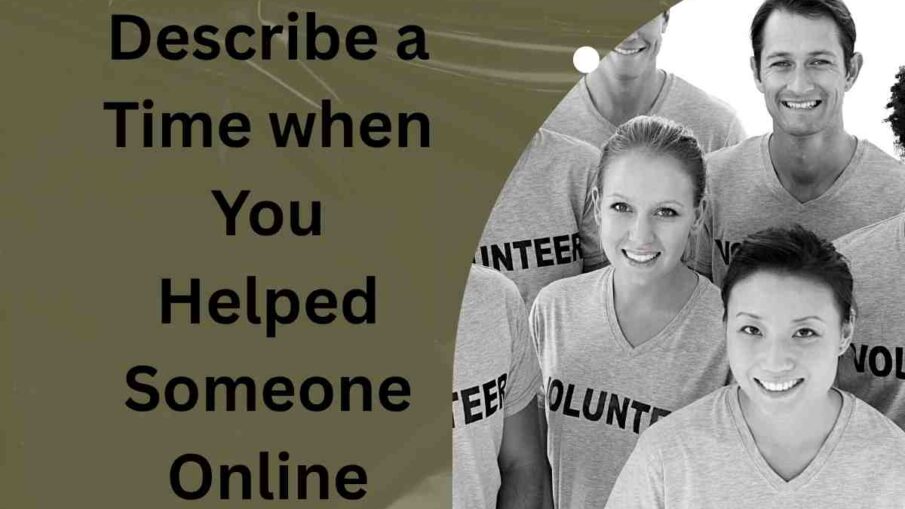Describe a time when you helped someone online (via the internet/social media). You should say:
- Who did you help and how?
- Why did you decide to help them online?
- How you feel afterwards, and let me know if you think helping online is as good as helping in person.
Cue Card Answer: Describe a Time when You Helped Someone Online
I’d like to talk about a time when I helped someone online through a social media platform. A few months ago, I noticed a classmate posting on a university forum that they were struggling with coding assignments for our computer science course. They seemed really stressed and frustrated because the deadlines were approaching fast.
I decided to help them by sharing some study resources, explaining certain programming concepts, and even sending a few short video tutorials that I had found useful. I also offered to clarify any doubts they had through instant messaging. I chose to help online because I live in a different city from most of my classmates, and it was impossible to meet in person at that time.
After helping them, I felt really satisfied and happy because they messaged me later saying that they had successfully completed their assignment and felt much more confident about coding. It was a great feeling to know that I had made a positive difference, even from a distance.
In my opinion, helping online can be very effective, especially for sharing knowledge or resources quickly. However, it might not always replace face-to-face help, especially if someone needs emotional support or hands-on assistance.
Follow-Up Questions (Sample Answers): Describe a Time when You Helped Someone Online
Question 1:- Has the internet changed the way people provide support or help to others?
Yes, definitely. People can now offer support instantly, share information widely, and reach those in need even if they live far away. Online platforms make it easier to connect with strangers who need help.
Question 2:- What are the benefits and limits of helping people online?
Benefits include convenience, speed, and accessibility. However, limits include lack of personal interaction, miscommunication, and sometimes the helper cannot fully understand the person’s real situation.
Question 3:- Do you think people are becoming more socially conscious because of online platforms?
Yes, social media has made people more aware of global issues, charitable campaigns, and social causes. It encourages participation and sharing, although sometimes awareness doesn’t always translate into real-world action.
Question 4:- How should people find a balance between online help and real-world, face-to-face help?
People should use online help for guidance, information, and quick support, but combine it with face-to-face assistance for emotional or practical help. Volunteering locally or visiting people who need support is still important.
Question 5:- Can helping someone online bring risks? What might they be?
Yes, there can be risks. For instance, sharing personal information online may compromise privacy, or sometimes people may misinterpret advice. Scams and frauds are also potential dangers if one is not careful.

